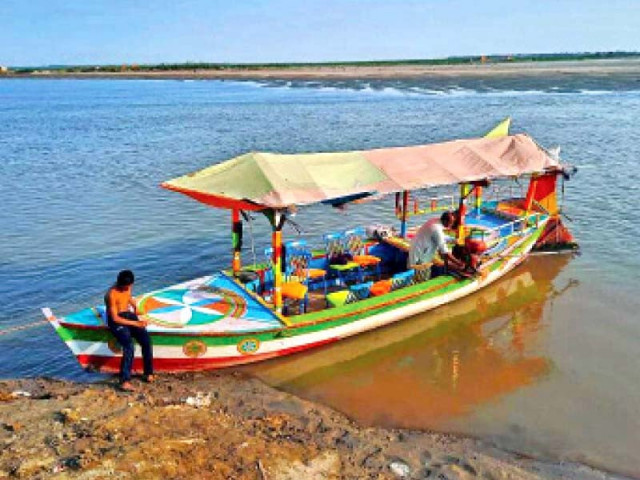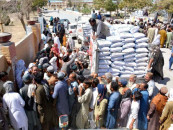‘Dhawni’ a forgotten chapter of DI Khan history
The days of picnicking on the banks of the Indus River are long gone

Indus River was once considered part and parcel of local culture and lives in Dera Ismail Khan district of Khyber-Pakhtunkhwa (K-P).
Picnicking on its banks was almost ritualistic for Hindus and Muslims alike before partition. A wealthy Hindu constructed a high raised platform locally called thala on the bank of River Indus which was called Thala Balo Ram. In the middle of tall trees it was a perfect spot for Hindu picnic-makers.
Unfortunately, with the passage of time, picnic on the bank of Indus has also lost its charm. Now very few people go to the river to enjoy some moments of leisure and relaxation.
“When I was a child the Indus River had a width of 12 kilomters in summers. It used to be full of water and annual flooding was yearly routine. There were millions of birds, their calls were mesmerizing and the district was less populated too,” said a local historian of Dera, Hafiz Gillani while talking to The Express Tribune.
Friday was a picnic day on the bank of the river for all and sundry.
“You would not find a shop open in the market on Fridays until 1990s because it was dhowni day – swimming day for locals,” he recalled, saying that in Seraiki dhown meant washing yourself or taking a bath so dhowni was bathing in the river.
“Swimming or bathing in the river was not an easy task but still people would go for it and each Friday the river claimed one or two lives due to lack of safety measures,” he maintained.
Before independence the British administration constructed a large embankment to save Dera city from annual floods and later Dera Cantonment was built on this embankment.
“The cantonment was built with proper planning and on modern lines along the length of Indus River outside the old city and there were lawns on the bank especially reserved for the British elite. Locals were freely allowed in the Cantt as the construction of this mini city increased the beauty of the river,” he said, adding that Cantt became a favorite spot for local residents but after 2007 it was completely sealed and picnicking on the bank of Indus (inside the Cantt) was prohibited.
“After 2007 we see a big shift in the attitude of the residents because of this ban. Now they seldom go to the river bank. A big cultural change has occurred due to law and order and closing of Cantt for locals,” said another local, adding that the Indus River is no more a place of de-stressing and relaxation for the locals.
“We used to go to the river-bank to cook food and bath in the cold water to beat the heat. In the winters there was no bathing but still eating and drinking tea was a must,” said another local Allah Yar, adding that all those days are long gone.
The younger generation and even older people are not interested in such activities anymore despite the fact that there are a few restaurants along the river but the crowds are no more.
Published in The Express Tribune, May 21st, 2022.



















COMMENTS
Comments are moderated and generally will be posted if they are on-topic and not abusive.
For more information, please see our Comments FAQ